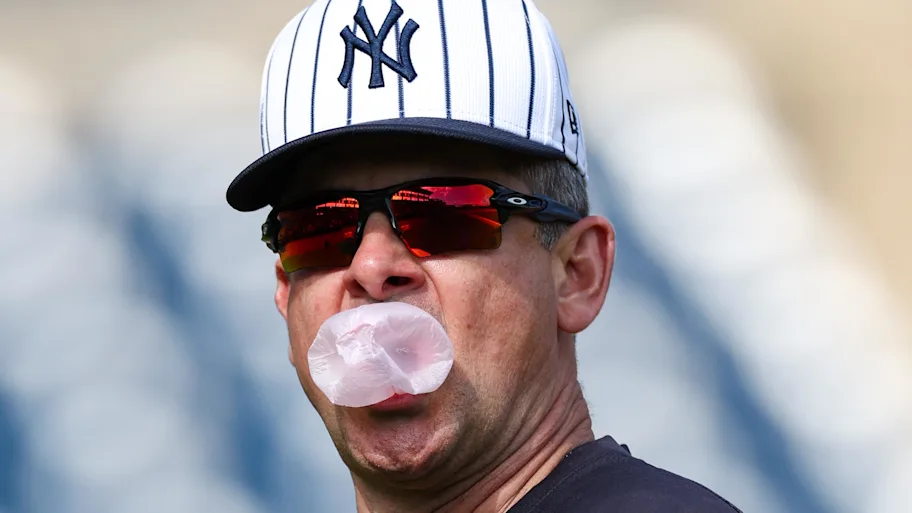
Explosive players, both on court and off court, are not a rarity in today’s tennis. From retired stars such as John McEnroe and Serena Williams to Andrey Rublev, Nick Kyrgios, or Daniil Medvedev, some players are known for their passion, which, more often than not, lead to some intense outbursts.
However, before our contemporary rebels, Romanian star and former World No. 1 Ilie Nastase was tennis’ original “bad boy” in the 1970s. While he was a threat for a sport associated with politeness, he had more than enough talent to back it up.
Nastase was part of the generation of players which lived through the change from the amateur tour to the Open Era, which started in 1968, when the Grand Slams started offering prize money and allowing professional players to compete. He was also one of his first high-profile beneficiaries, even having the honor of being the inaugural World No. 1 in the ATP rankings in 1973.
At his peak, Nastase was known for his speed, precise footwork, and exceptional ball control, often getting past opponents with well-placed lobs. Over his career, he secured 64 singles titles on the ATP Tour and was honored with induction into the International Tennis Hall of Fame in 1991. He was also one of the first tennis players to sign a contract with Nike.
In Grand Slams, he defeated Arthur Ashe to win the US Open in 1972, before claiming the 1973 French Open without dropping a set. That same year, he won Wimbledon doubles titles partnering with Jimmy Connors, whom he also won the US Open in 1975. Additionally, he won two Wimbledon mixed doubles titles alongside Rosie Casals.
His evident excellence was paired with an unruly behaviour, including complaints and confrontations with umpires, as well as famous meltdowns, such as against Hans-Jürgen Pohmann in the 1976 US Open, as well as John McEnroe in 1979 in the same tournament. His attitude was so bad that he was known as “Nasty,” a nickname that is also the title of the 2024 documentary on his life.
About this, Nastase told The Guardian in 2024: “We wanted to be professional, but we had unprofessional umpires. For me, that was the problem. I never complained about something I wasn’t sure was wrong. I had to do right for myself. That’s why I said what I said and, of course I got banned, I got fined. I paid for it.”
“They are so strict,” he said, about today’s rules, “but when I was No 1 you could get away with more and more stuff.” Actually, according to the legend, Nastase’s behavior was partly responsible for prompting the International Tennis Federation to create a professional code of conduct in 1976.
In that sense, probably his most remembered scandal involved Arthur Ashe, the American legend, and was the straw that broke the camel’s back. According to -We Are Tennis, during the match against Ashe in December 1975, Nastase made the usually stoic Ashe retire due to his antics. He told him three times, every time Ashe was about to serve, “Are you ready, Mister Ashe?” creating a difficult situation. The American decided to leave the match telling the umpire that he “rather be disqualified than lose my self-esteem.” Officials decided to give Ashe the win.
However, despite this and other instances, in which he used the N-word against Ashe, Nastase says that they were good friends, calling him the “biggest gentleman” he ever met in his career. While the Romanian always defended himself against accusations of racism, he had another big controversy with another Black star: Serena Williams.
In 2017, after Williams won the Australian Open and revealed she was 20 weeks pregnant with her first daughter, Olympia, the American star accused Ilie Nastase of making racist comments. At a press conference during the Fed Cup tie between Romania and Britain, Nastase was overheard making a remark about Williams’ unborn child: “Let’s see what colour it has. Chocolate with milk?”
During the same Fed Cup tie, Nastase’s behavior escalated. He was heard asking British captain Anne Keothavong for her hotel room number. On the first day of the event, he verbally abused chair umpire Jaume Campistol and referee Andreas Egli, before calling Keothavong and then-British No. 1 Johanna Konta “f****** b******”as he was escorted off the court.
Williams wrote on Instagram at the time: “It disappoints me to know we live in a society in which people like Ilie Nastase can make such racist comments towards myself and unborn child, and sexist comments against my peers. I have said it once and I’ll say it again, this world has come so far but yet we have so much further to go.”
As a result, the ITF’s internal adjudication panel suspended the former world No. 1 from acting in an official capacity at all team competitions and tennis circuits until December 31, 2020. He was also banned from attending events until 2019 and fined $10,000.



